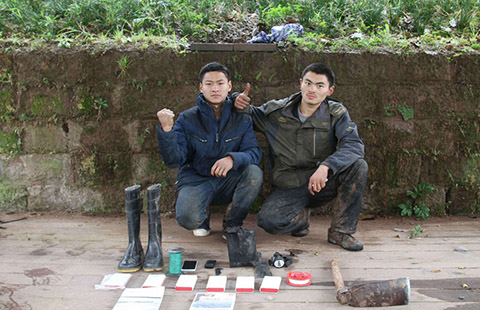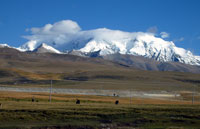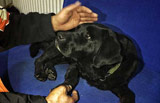US seems unusually ignorant about Diaoyu Islands history
(Xinhua) Updated: 2012-09-12 18:50BEIJING - While the diplomatic standoff between Beijing and Tokyo simmers following Japan's farce to buy China's Diaoyu Islands, the United States has kept unusually silent concerning the true history of the territory.
Even if Washington deliberately neglects the fact that the Diaoyu Islands were first discovered and named by the Chinese, it has no excuse to deny that it does know the history of the islands after the World War II.
The reason is simple because the United States is one of the parties that played a key role in the evolution of the issue.
After the end of World War II, China recovered territory invaded and occupied by Japan - including Taiwan and the Penghu Islands - in accordance with the Cairo Declaration and the Potsdam Proclamation, which the United States had approved.
According to international law, the Diaoyu Islands have already been returned to China.
In other words, returning the islands to China is a post-war arrangement made by major powers, including the United States itself.
However, what Japan is presently doing is an outright denial of the outcome of the victory of the world anti-Fascist war, which constitutes a grave challenge to the post-war international order.
It is undeniable that America has made great contributions to the war victory. But as a major player in establishing the post-war international order, Washington should shoulder the responsibility to prevent Japan from changing it.
Americans must have been quite clear about the illegal and arbitrary reversion of the Diaoyu Islands to Japan. It is not difficult for US officials and independent media to find relevant original documents in American diplomatic files.
In 1951, the Treaty of San Francisco, partial in nature, placed the Ryukyu Islands (known as Okinawa today) under the trusteeship of the United States.
In 1953, the United States Civil Administration of the Ryukyu Islands arbitrarily expanded its jurisdiction to include the Diaoyu Islands, which are in fact Chinese territory.
In 1971, the Okinawa Reversion Agreement signed by Japan and the United States arbitrarily included the islands in the territories and territorial waters to be reverted to Japan.
Those were backroom deals between Tokyo and Washington, agreements that China firmly opposed and never acknowledged from the beginning.
Facts are facts, and history can't be reversed. If the United States truly is a responsible international player, it should tell the world the truth about the evolution of the Diaoyu Islands issue.
Unfortunately, the United States contradicts itself in its position regarding the islands and even goes so far as to support Japan in its provocations against China.
For one thing, the US State Department stated the islands are under the administrative control of the Japanese government, and that they fall under the scope of the US-Japan security treaty.
For another, Washington claims it does not take a position on the ultimate sovereignty of the islands.
Washington apparently is clear that openly supporting Japan would damage the image of a world leader that it has been pursuing.
No wonder, then, that when US Secretary of State Hillary Clinton met with Japanese leaders earlier this week, she made empty talk about the islands, only giving a hint for Tokyo to continue its confrontation with China.
The United States seemingly is playing the old trick of "divide and rule," attempting to play a bigger role when the western Pacific is in turmoil.
In short, the action fits with the American strategy of "pivot to Asia," a strategic shift that experts say won't solve Asia's problems and instead may add to uncertainty in the region.
- US urges peace in dispute over Diaoyu Islands
- Chinese people support govt on Diaoyu Islands
- Vice Premier reiterates Diaoyu Islands in meeting
- China provides weather forecast for Diaoyu Islands
- Taiwan blasts Japan over Diaoyu Islands
- CPPCC condemns Japan's purchases of Diaoyu Islands
- China voices protest to Japan over Diaoyu Islands
- China forecasts weather on Diaoyu Islands
- China's military vows to defend Diaoyu
- Chinese ships reach waters around Diaoyu Islands
- Japanese govt signs purchase contract on Diaoyu Islands
- Some Tibetan plants can predict Indian monsoon
- Chinese scientists create functional sperm from stem cells in lab
- 2nd-child plans vex female job seekers
- Court takes case of improper detention
- Projects opening to overseas researchers
- Streamlined processes to aid top talent
- Two smog hot spots identified in Beijing by think tank
- China-led gravitational wave venture seeks global talent
- Gated communities will open 'gradually', says ministry
- Watchdog pledges to intensify scrutiny







